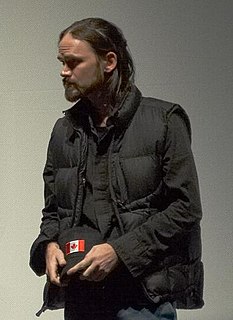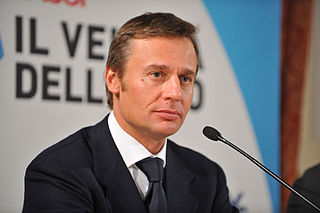A Quote by Antara Mali
I'm still not ready to come back and 'And Once Again' is just a one-off film that I'm doing. It's not my comeback film.
Related Quotes
Your first film is always your best film, in a way. There's something about your first film that you never ever get back to, but you should always try. It's that slight sense of not knowing what you're doing, because the technical skills you learn - especially if you have a film that works, that has some kind of success - are beguiling. The temptation is to use them again, and they're not necessarily good storytelling techniques.
The talented actor needs craft. When you do a stage play, you do it once each night in chronological order. In a film you're going to wind up doing a scene 15-20 times, just by the nature of the process. If I tell you a joke once, it's funny. The more times I tell, the less funny it is. How do you get to the point where you can laugh again? You also may have to cry again and again.
In my opinion, having worked in the games industry and still keeping in touch with a lot of those guys, there was definitely a time when they saw themselves as the little brother of the film industry. But they kind of went off in a different direction and now see themselves, I think, as being far more interesting and ahead of the film industry. They haven't just caught up. They've gone off in a different direction and exceeded the film industry.
I went to Oberlin College, and they don't have a film major, but they do have what's called an individual major, where you can sort of pitch to a committee your own course study, and if they approve it, you have essentially just designed your own major. So Oberlin doesn't have a film major; they do have a film minor... And then my spring semester of my junior year, I went off to NYU film school as a visiting student - they have a program for kids from other schools to come in for a semester.
When you write a novel or paint a picture, you have the opportunity to approach it and back off, tear up pages, write, rewrite, paint over, and come back to it. In film, once you start shooting, you can't restart the clock, and you keep moving forward, and you don't look back, and you don't go back. And that is, of course, antithetical to the creative process. It's really hard to generate a comfortable creative flow under that kind of pressure.
I'm ready for all forms of dialogue about the film The Conquest. There will be a lot of political talk, but I don't think the film itself will be scandalous. For the French, there are so many emotions relating to Sarkozy and politicians in general that I think the film will generate a lot of passion, whether it be negative or positive. Above all, it's a fictional film. It was important not to make a documentary and to really pay attention to the images. From the choice of the actors to the mise en scene, the film is completely cinematographic. It's not just a boring political movie.
When you're doing a film and the majority of the film is cast black, for me, it's most important to get people to view those movies as just movies, as just good movies. At the end of the day, regardless of the color of the cast, we're all doing the same thing in this business: trying to make a good film.




































